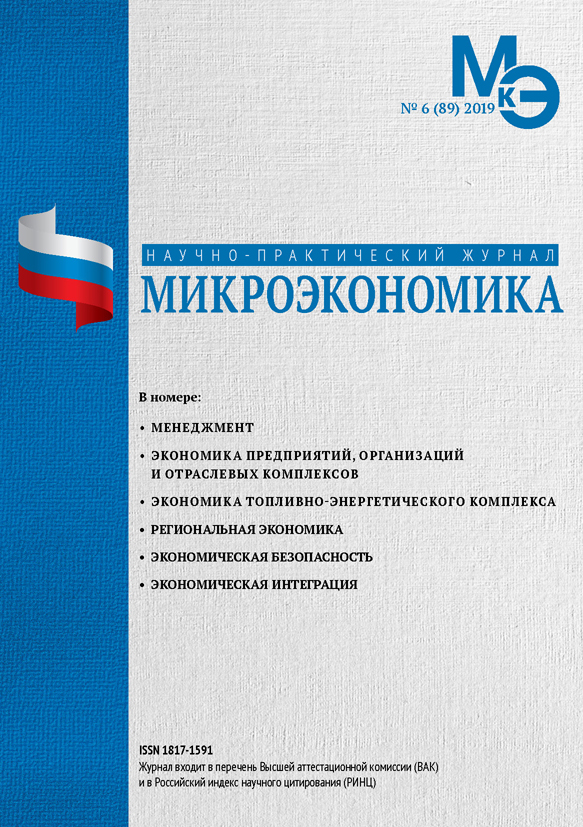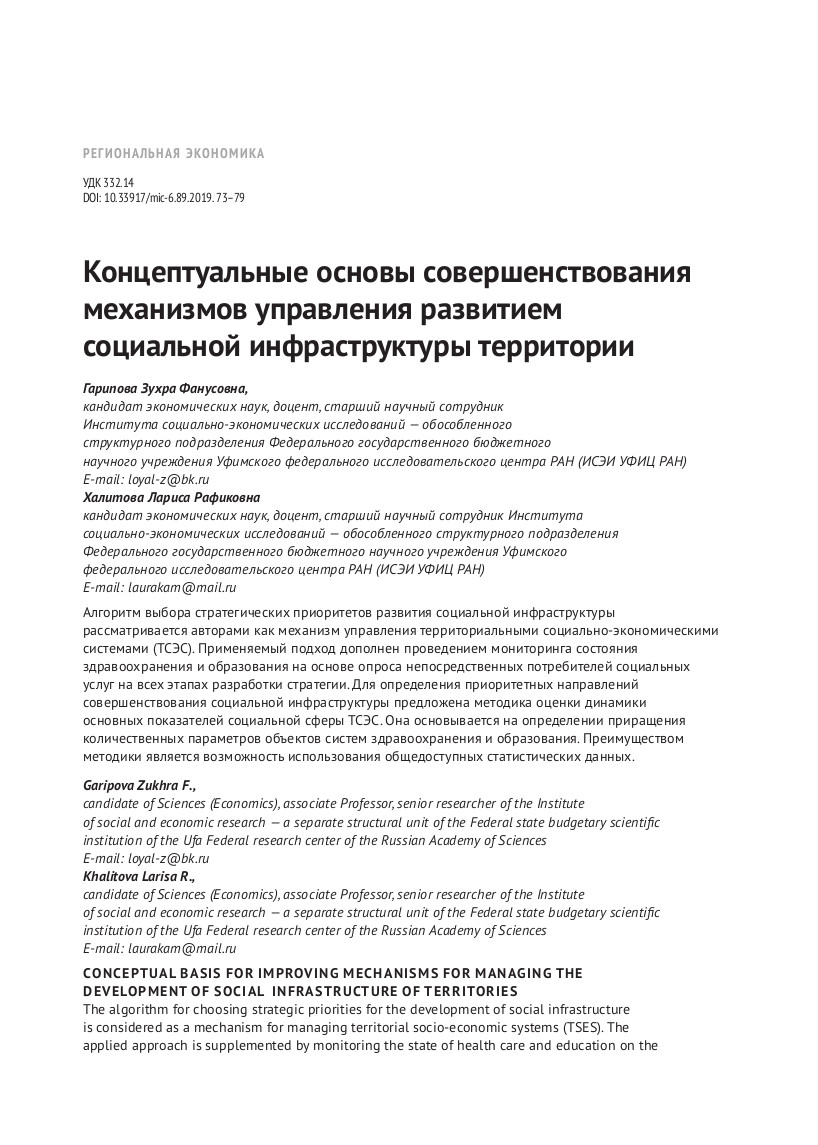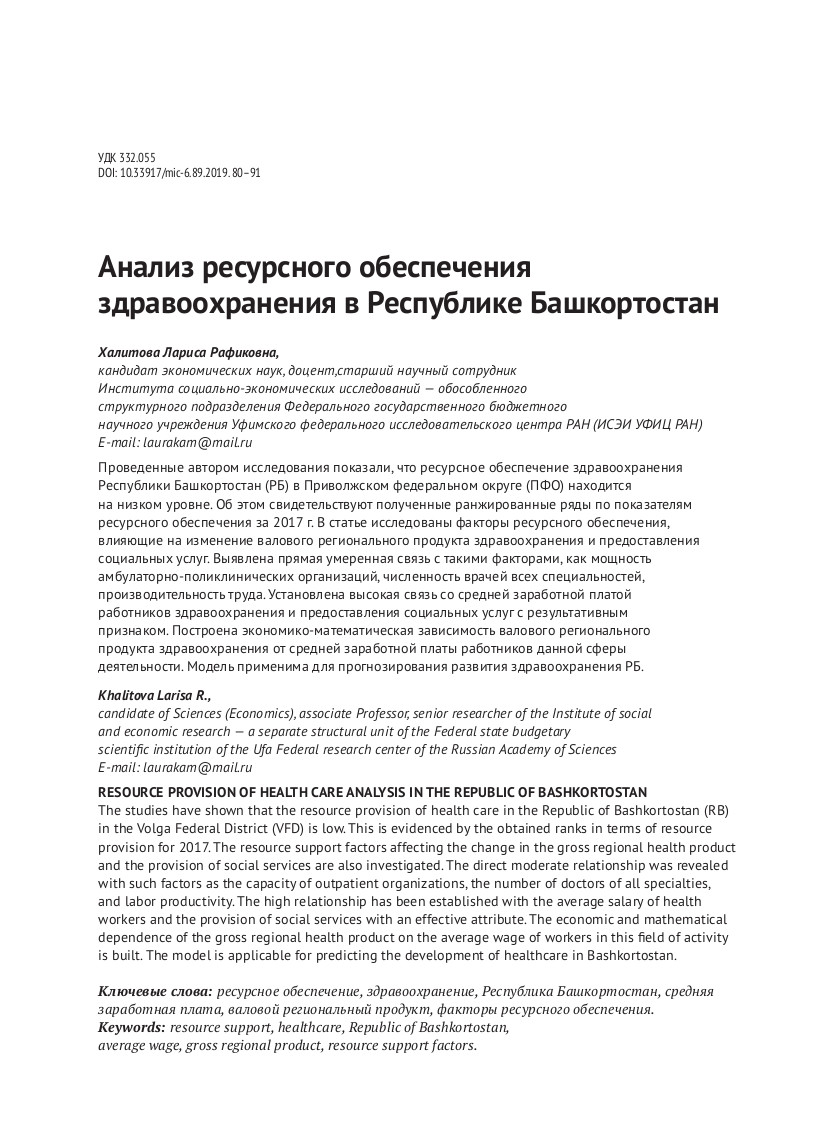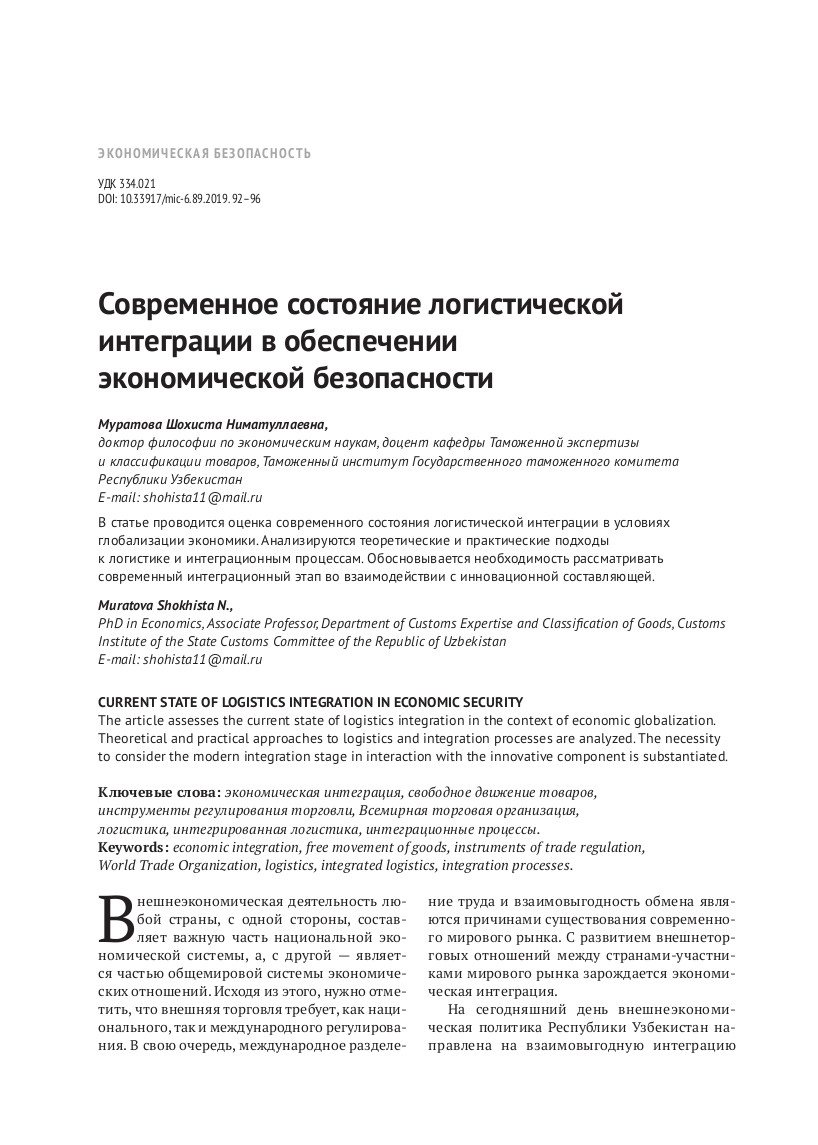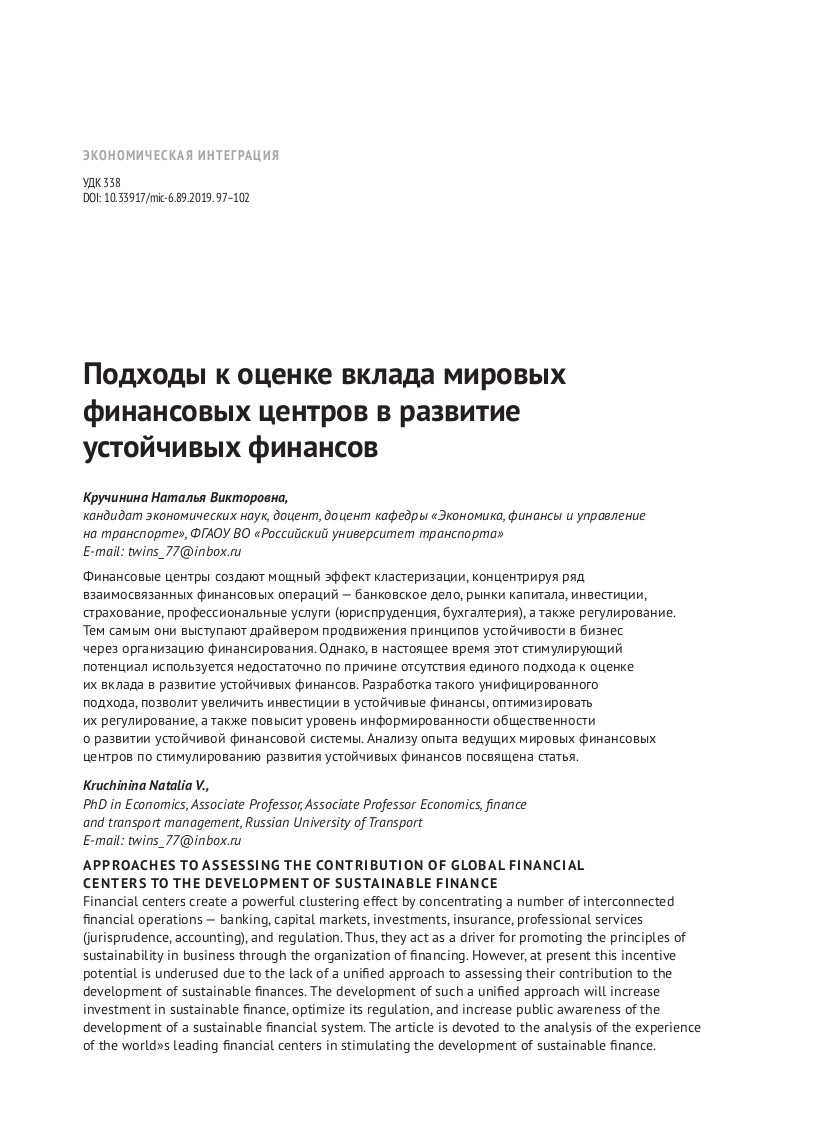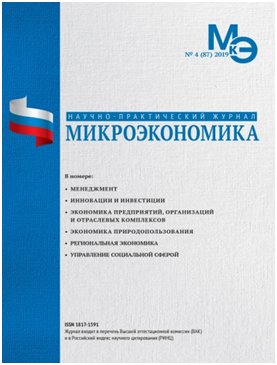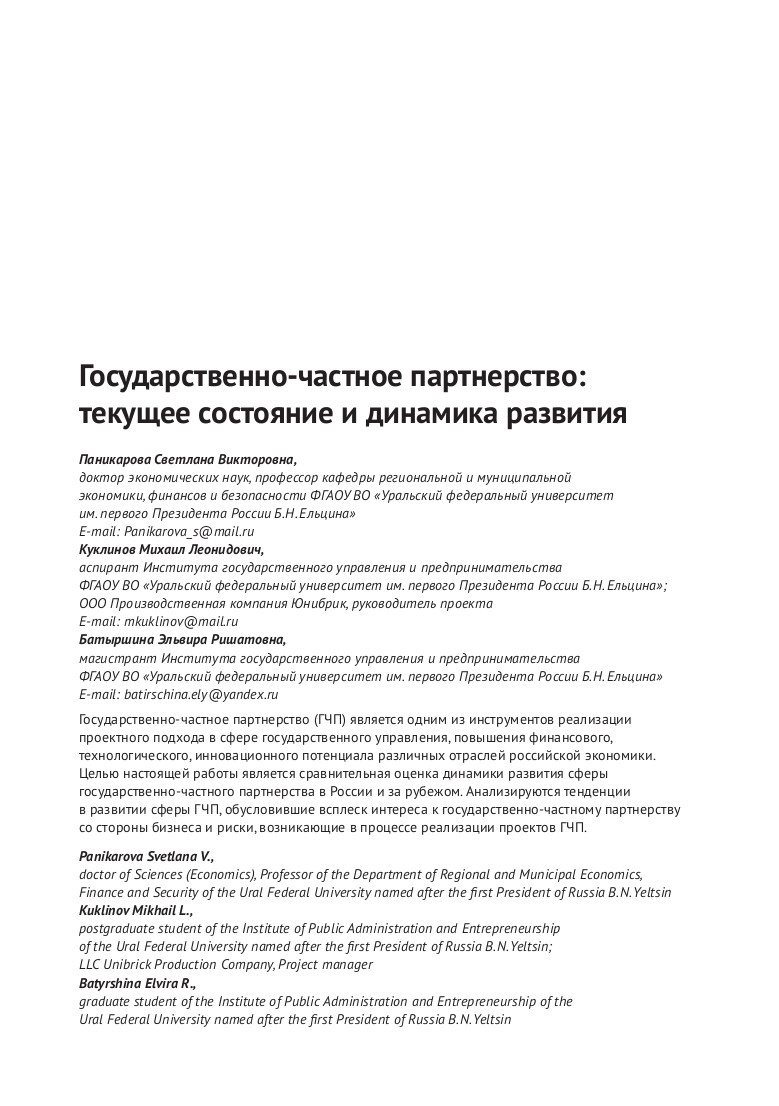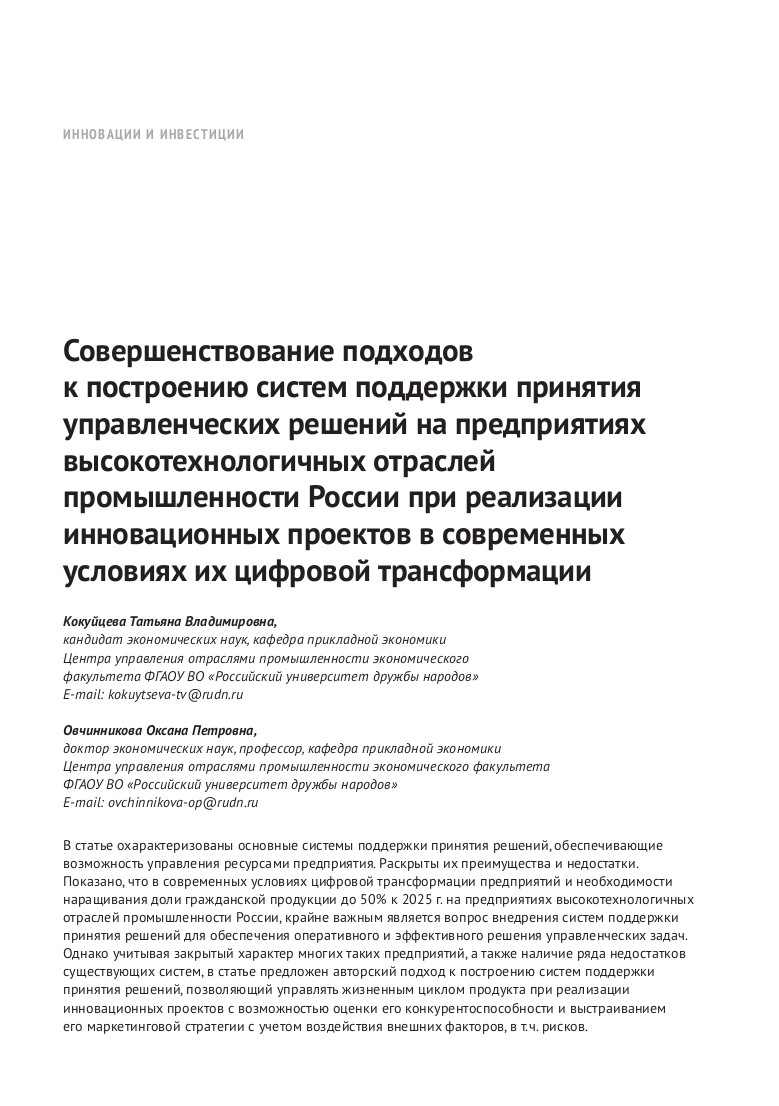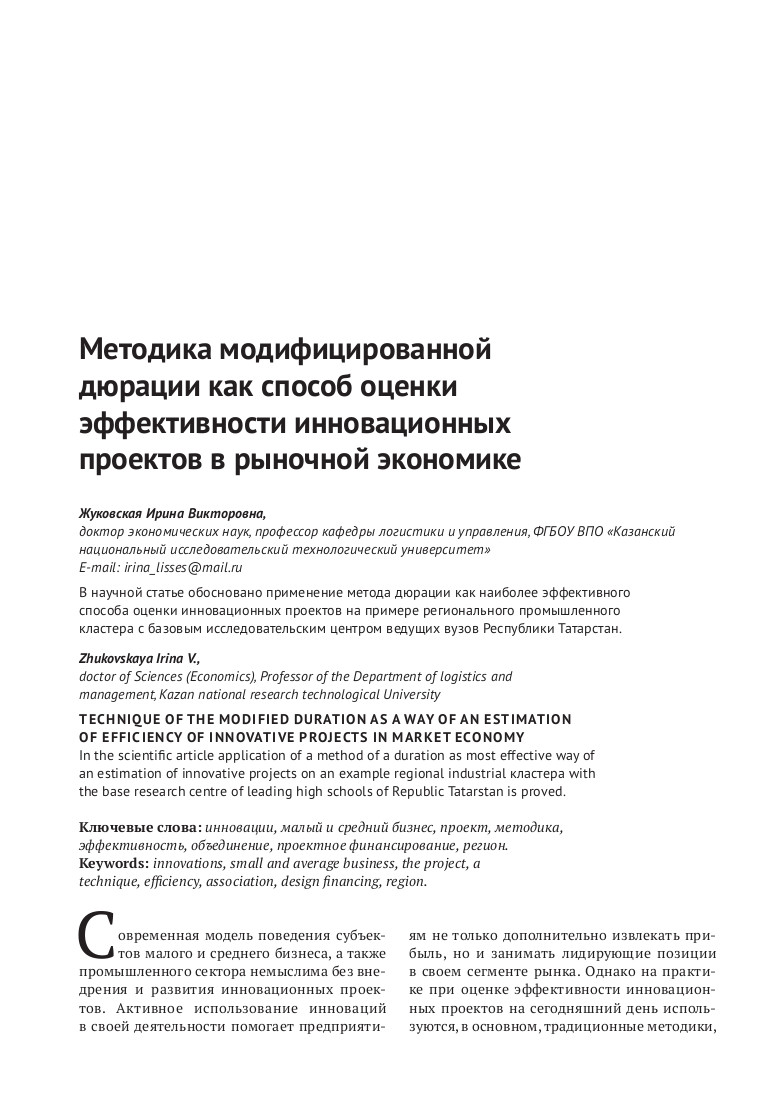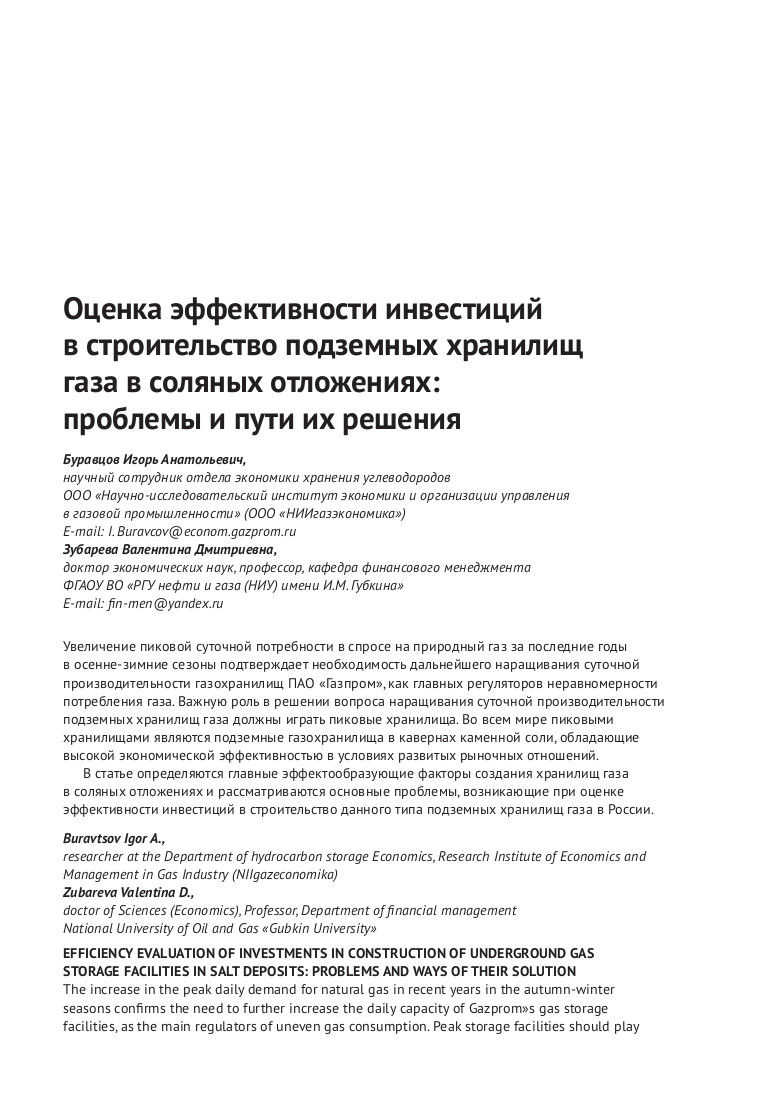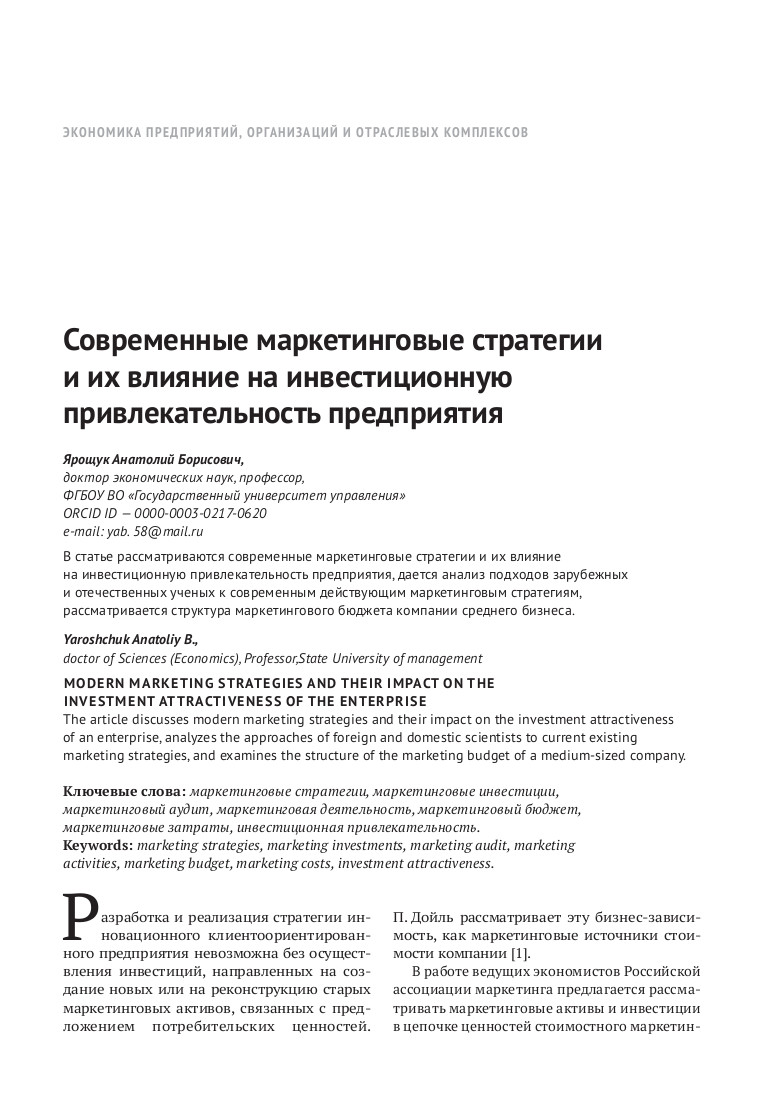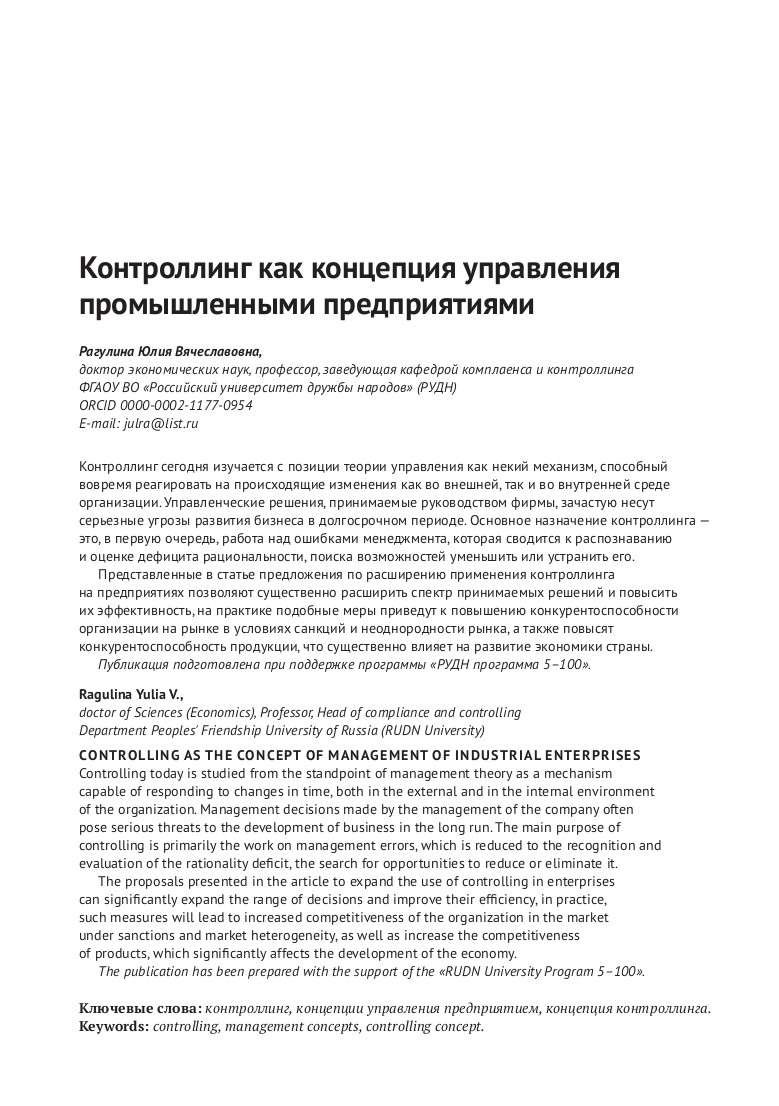Conceptual basis for improving mechanisms for managing the development of social infrastructure of territories
DOI: 10.33917/mic-6.89.2019.73-79
The algorithm for choosing strategic priorities for the development of social infrastructure is considered as a mechanism for managing territorial socio-economic systems (TSES). The applied approach is supplemented by monitoring the state of health care and education on the basis of a survey of direct consumers of social services at all stages of strategy development. To determine the priority areas for improving social infrastructure, a methodology for assessing the dynamics of the main indicators of the social sphere of TSES is proposed. It is based on determining the increment in the quantitative parameters of objects of health care and education systems. The advantage of the technique is the possibility to use publicly available statistics.


